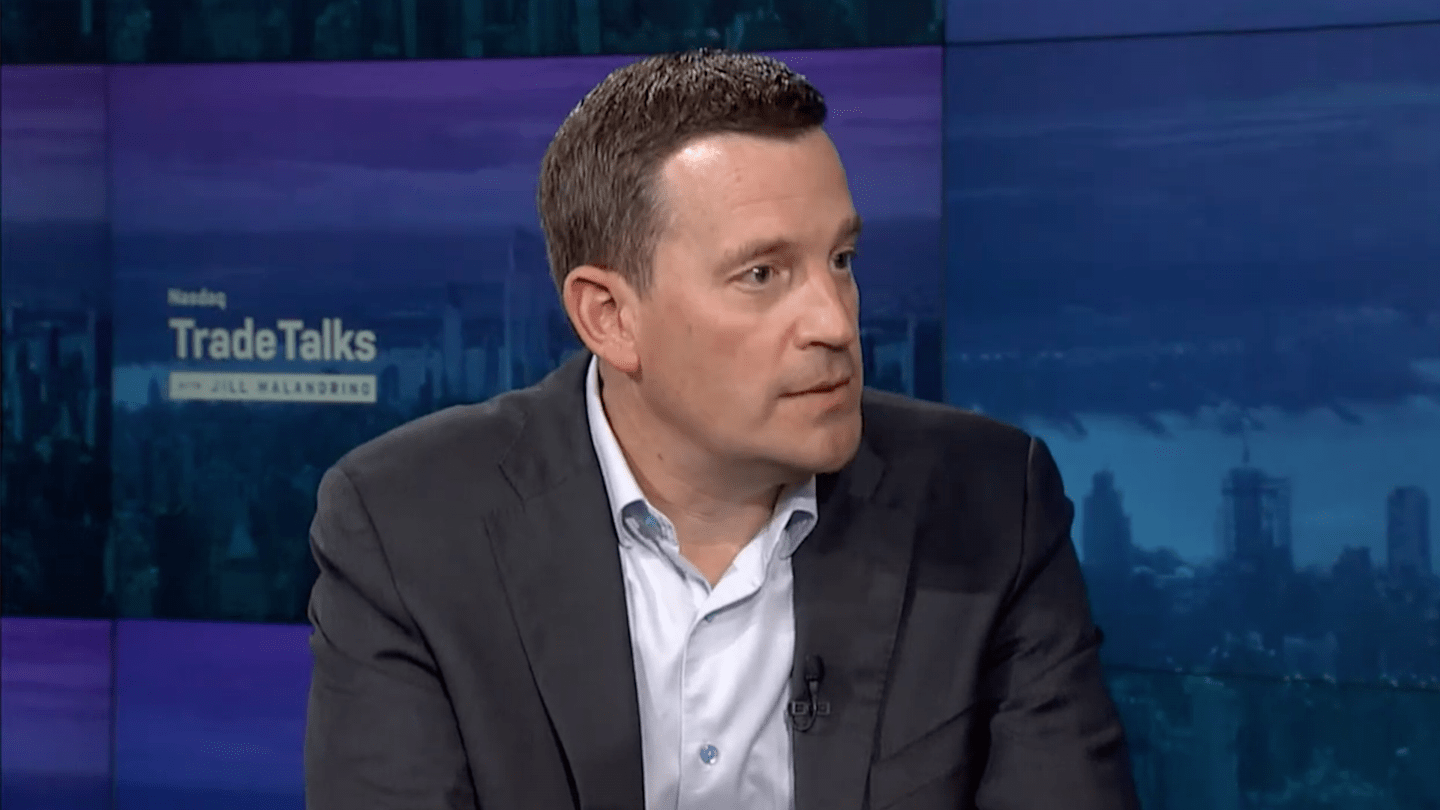Matt Lewis, Head of ETF Implementation and Capital Markets sat down with NASDAQ Trade Talk’s Jill Malandrino to talk about the Capital Markets Ecosystem, layers of ETF liquidity and trading lower volume ETFs.
Author
This material has been prepared for educational purposes only. It is not intended to provide, and should not be relied upon for, investment, accounting, legal or tax advice.
Exchange Traded Funds (ETFs) are bought and sold through exchange trading at market price (not NAV), and are not individually redeemed from the fund. Shares may trade at a premium or discount to their NAV in the secondary market. Brokerage commissions will reduce returns.
Generally, as interest rates rise, the value of the bonds held in the fund will decline. The opposite is true when interest rates decline.
The lower rated securities in which the fund invests are subject to greater credit risk, default risk and liquidity risk.
Derivatives may be more sensitive to changes in market conditions and may amplify risks.
Duration, which is an indication of the relative sensitivity of a security's market value to changes in interest rates, is based upon the aggregate of the present value of all principal and interest payments to be received, discounted at the current market rate of interest and expressed in years. The longer the weighted average duration of the fund's portfolio, the more sensitive its market value is to interest rate fluctuations. Duration is different from maturity in that it attempts to measure the interest rate sensitivity of a security, as opposed to its expected final maturity.
Glossary
Market maker
A market maker exists to "create a market" for specific company securities by being willing to buy and sell those securities at a specified displayed price and quantity to broker-dealer firms that are members of the exchange. These firms help keep financial markets liquid by making it easier for investors to buy and sell securities–they ensure that there is always someone to buy and sell to at the time of trade.
Authorized Participant (AP)
An AP is a broker/dealer that is contractually authorized to create and redeem ETF shares directly with the fund. When there is a shortage of ETF shares in the market, the AP creates more. If the demand falls short of the supply, the AP will reduce the number of shares in circulation. This helps keeps ETF share prices aligned with their underlying net asset value (NAV).
Limit order
An order placed with a bank or brokerage firm to buy or sell a fixed amount of an investment at a specified or better price. Investors can limit the amount of time the order is valid before being cancelled. But if the investor's specified price cannot be met during the set timeframe, the trade will not be executed. As such, there is no guarantee that a limit order will result in an executed trade.
Market order
An order placed with a bank or brokerage firm to immediately buy or sell a security at the best available current price. May also be referred to as an "unrestricted order."
Liquidity
Liquidity describes the degree to which an asset or security can be quickly bought or sold in the market without affecting the asset's price.
Primary Market for Exchange Traded Funds
The primary market is where ETF shares are created and redeemed amongst ETF issuers and authorized participants. This is where the underlying basket of securities that make up an ETF is created. Shares of ETFs are made in large batches called Creation Units—usually 25,000 to 600,000 ETF shares are created at a time through this process.
Secondary Market for Exchange Traded Funds (ETFs)
The vast majority of investors will only deal with the secondary market when buying and selling ETFs. This is where shares of ETFs are bought and sold amongst other investors on an exchange.
Exchange Traded Funds (ETFs): Foreside Fund Services, LLC - Distributor, not affiliated with American Century Investment Services, Inc.






